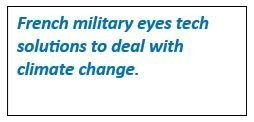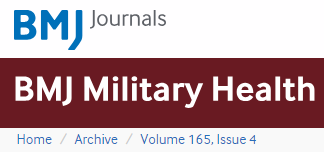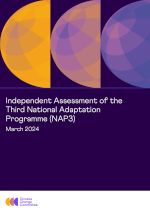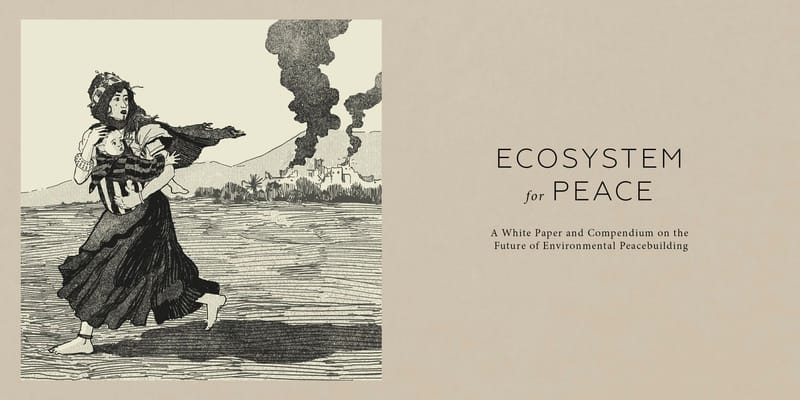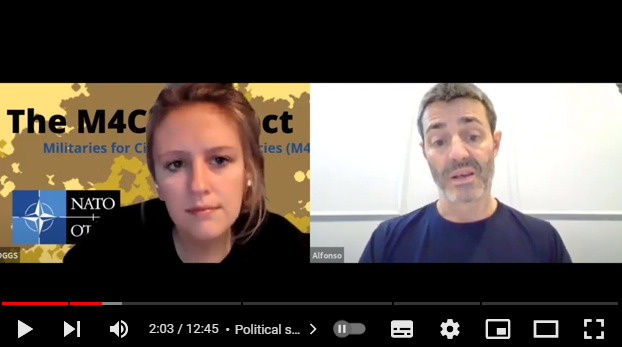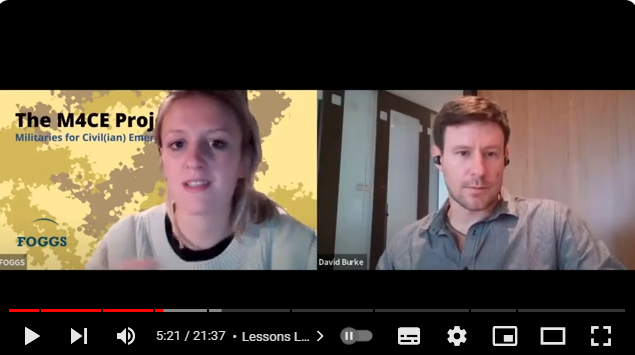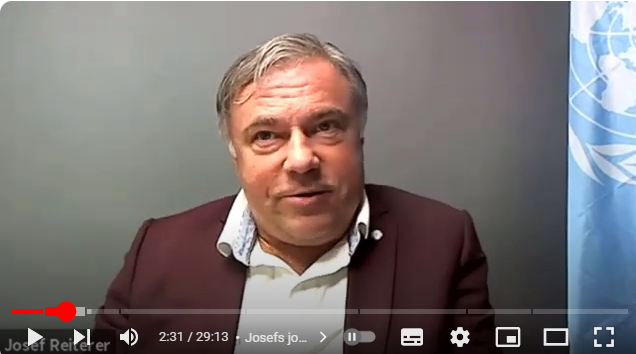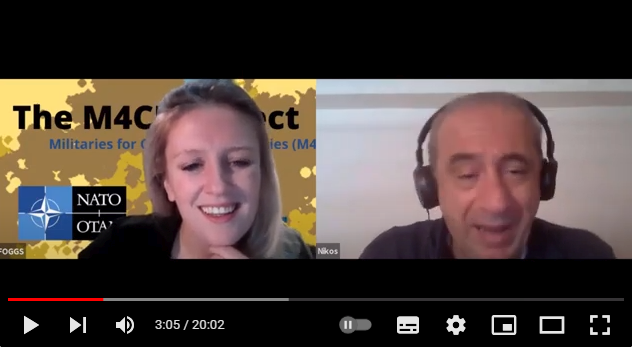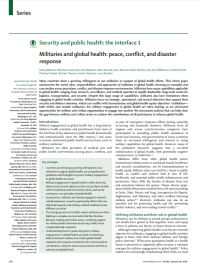PUBLICATIONS
French military eyes tech solutions to deal with climate change
10 June 2022 - French Armed Forces Minister Florence Parly approved her department’s first defence strategy related to climate change on April 25, 2022, with its intent to help prepare the nation’s troops to face the global climate crisis. The strategy lays out a holistic plan to coordinate all offices within the ministry to effectively mitigate the effects of climate change and address an energy transition away from fossil fuels. Among the key equipment investments are hybrid armoured vehicles, with a Griffon-centric program serving as the prototype for future hybrid trucks.
Global health diplomacy and humanitarian assistance: understanding the intentional divide between military and non-military actors
2019 - This paper examines the history of global health diplomacy as directly related to humanitarian assistance, focusing on the difference in intention to highlight ethical dilemmas related to military involvement in the humanitarian sphere. The relationship between non-military humanitarian actors and military actors will be a focal point of discussion, as this relationship has been historically complicated and continues to shift. Relevant differences between these two groups of actors, their motivations and work will be highlighted. In order to examine the morally important differences between these groups, analysis will draw on relevant international doctrine and codes that attempt to provide ethical guidance within the humanitarian sphere.
How the military is helping in Germany's flood-hit areas
19 July 2021 - The German military is deploying soldiers to help with relief efforts in the flood regions of western Germany. The country has tight constitutional restrictions on how the Bundeswehr is used within its borders.
Independent Assessment of the Third National Adaptation Programme (NAP3)
13 March 2024 - This briefing provides the Climate Change Committee’s initial assessment of the Third National Adaptation Programme (NAP3), the government’s programme to ensure the country is resilient to the impacts of climate change, which was published in July 2023.
Integrating Climate Security into NATO’s Plans and Operations: Lessons learned and ways forward
NATO must incorporate the security implications of climate change into its plans, operations, exercises, and strategy. NATO should also operationalize climate security in each Alliance member’s National Defence Planning Process (NDPP) cycle. Achieving both acts will help ensure NATO’s operational readiness to the security implications of changing climate regimes.
Interview with Mr Alfonso Lozano Basanta | The M4CE Project
10 November 2021 - Mr Alfonso Lozano Basanta is the current Coordinator of the Emergency Response Coordination Centre (ERCC) in the European Commission. He serves as Programme Officer in the development of the European Civil Protection Pool (ECPP) and as Deputy Team Leader of the ERCC Operations. In this capacity, Mr. Lozano Basanta is at the forefront of international emergency response coordination.
Interview with Mr. David Burke | The M4CE Project
18 November 2021 - Mr. David Burke is the current Chief Programs Officer at Team Rubicon, an international non-government organization specializing in disaster response based in California, USA. He has served on the boards of National Voluntary Organizations Active in Disasters and as Board President at the Global War on Terrorism Memorial Foundation. Prior to his move to the non-profit space, he served nearly 5 years in the Marine Corps as a logistics officer.
Interview with Mr. Josef Reiterer | The M4CE Project
28 October 2021 - Mr. Josef Reiterer is at the forefront of civil-military relations as the Lead for Capability Development at OCHA’s Civil-Military Coordination Service (CMCS). In 2013, after heading OCHA’s Civil-Military Coordination Section for almost six years, Mr. Reiterer was appointed Chief of OCHA’s Readiness and Training Section. At the beginning of 2020, Mr. Reiterer joined the newly re-established Civil-Military Coordination Service.
Interview with Dr. Nora Bensahel | The M4CE Project
25 October 2021 - Nora Bensahel is a Visiting Professor of Strategic Studies and Senior Fellow of the Merrill Center for Strategic Studies at the Johns Hopkins School of Advanced International Studies (SAIS), Contributing Editor and Columnist for War on the Rocks, and Adjunct Research Staff Member at the Institute for Defense Analyses.
Interview with Mr. Nikos Votsios | The M4CE Project
21 October 2021 - Mr. Nikos Votsios has recently retired from the Greek Armed Forces, where he served with distinction as an Army Officer, retiring at the rank of Brigadier General. Among the high-level positions that Mr. Votsios occupied in the past were that of the Section Head, Intelligence Plans and Policy at NATO Supreme Headquarters Allied Powers Europe (SHAPE) and of the International Relations Director at the Ministry of National Defence in Athens, Greece.
Interview with Mr. Craig Fugate | The M4CE Project
20 October 2021 - Mr. Craig Fugate is the former Administrator of the US Federal Emergency Management Agency (FEMA) during the Obama Administration and current Chief Emergency Resilience Officer at One Concern.
Militaries and global health: peace, conflict, and disaster response
19 January 2019 - Many countries show a growing willingness to use militaries in support of global health efforts. This Series paper summarises the varied roles, responsibilities, and approaches of militaries in global health, drawing on examples and case studies across peacetime, conflict, and disaster response environments.
